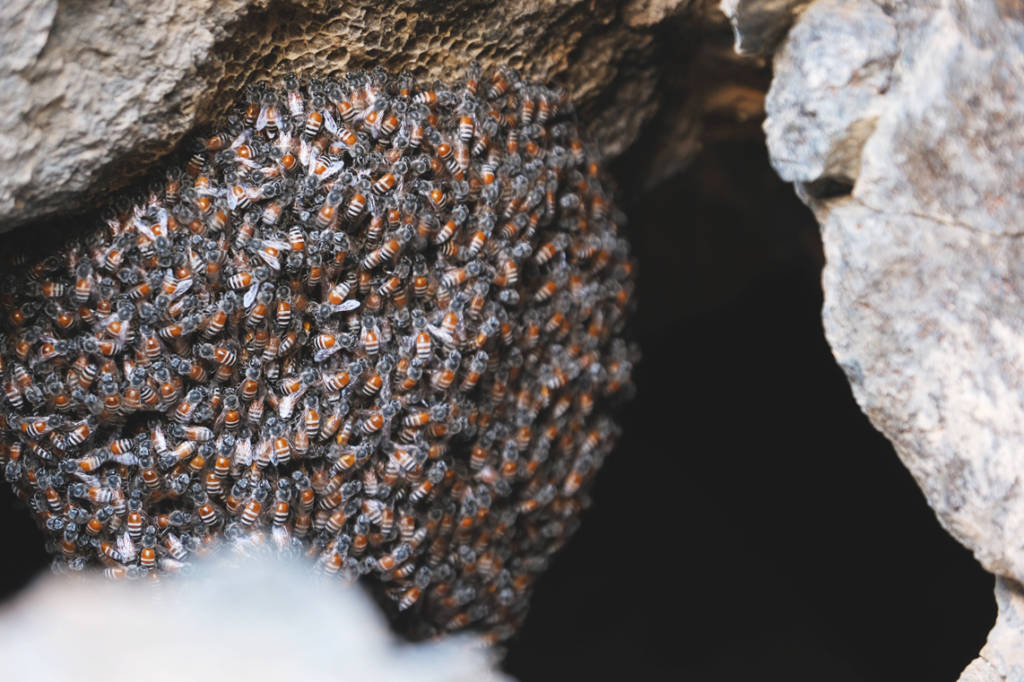There are 2 types of honeybees in the UAE, the native wild honeybees and the imported honeybees. The Wild honeybees. Apis florea, also called the Arabian or Asian dwarf honeybee is a tiny red-brown bee that typically measures between 7 and 10 mm, a small size compared to other honeybees.
Bee products:
Honey
Honey is the complex substance made when bees ingest nectar, process it, and store the substance into honey combs. All living species of Apis have had their honey gathered by indigenous peoples for consumption. A. mellifera and A. cerana are the only species that have had their honey harvested for commercial purposes.
Beeswax
Worker bees of a certain age secrete beeswax from a series of exocrine glands on their abdomens. They use the wax to form the walls and caps of the comb. As with honey, beeswax is gathered by humans for various purposes such as candle making, waterproofing, soap and cosmetics manufacturing, pharmaceuticals, art, furniture polish and more.
Bee bread
Bees collect pollen in their pollen baskets and carry it back to the hive.
Worker bees combine pollen, honey and glandular secretions and allow it to ferment in the comb to make bee bread. The fermentation process releases additional nutrients from the pollen and can produce antibiotics and fatty acids which inhibit spoilage.
Bee bread is eaten by nurse bees (younger workers) which produce the protein-rich royal jelly needed by the queen and developing larvae in their hypopharyngeal glands. In the hive, pollen is used as a protein source necessary during brood-rearing. In certain environments, excess pollen can be collected from the hives of A. mellifera and A. cerana. The product is used as a health supplement. It has been used with moderate success as a source of pollen for hand pollination.
Bees as food
Bee brood – the eggs, larvae or pupae of honey bees – is nutritious and seen as a delicacy in countries such as Indonesia, Mexico, Thailand, and many African countries; it has been consumed since ancient times by the Chinese and Egyptians.
Adult wild honeybees are also consumed as a food in parts of China, including Yunnan. According to a worker at a Yunnan-based specialty restaurant, the bees are best served “deep-fried with salt and pepper”, and they are “naturally sweet and tasty”. Kellie Schmitt of CNN described the dish as one of “Shanghai’s weirdest foods”.
Propolis
Propolis is a resinous mixture collected by honey bees from tree buds, sap flows or other botanical sources, which is used as a sealant for unwanted open spaces in the hive. Although propolis is alleged to have health benefits (tincture of Propolis is marketed as a cold and flu remedy), it may cause severe allergic reactions in some individuals. Propolis is also used in wood finishes, and gives a Stradivarius violin its unique red color.
Royal jelly
Royal jelly is a honey bee secretion used to nourish the larvae. It is marketed for its alleged but unsupported claims of health benefits. On the other hand, it may cause severe allergic reactions in some individuals.
References: Wikipedia

